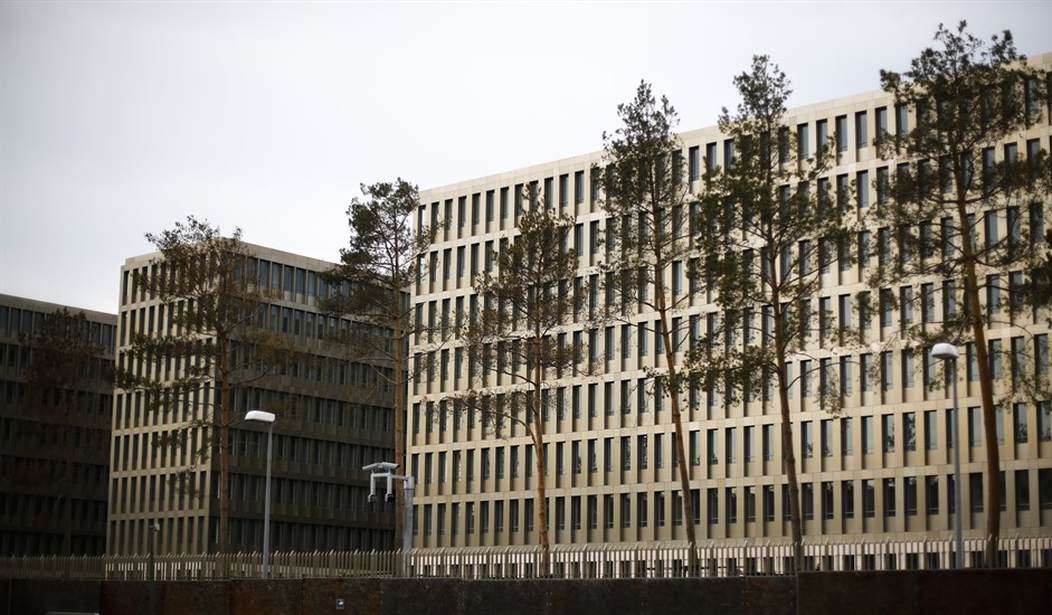His name is Carsten Linke and he was recently promoted to a top post in Germany’s intelligence service, the B.N.D. The NY Times reports he was the “director of technical reconnaissance — the unit responsible for cybersecurity and surveilling electronic communications.” He was also a double-agent being paid cash to pass information to Russia. He was apparently asked for specific information on the location of US HIMARS launchers in Ukraine:
Russia’s FSB spy service asked Carsten Linke last autumn via a courier to pass on precise information on the positioning of the Himars and Iris-T rocket systems that had been supplied to Ukraine by the US and Germany, Der Spiegel reported on Friday.
German prosecutors are said to believe that it is unlikely that Mr Linke was able to pass on the information.
In return, the FSB likely paid the suspected German spy in cash. Investigators have found an envelope with a six figure sum in euros in a locker that belonged to him, the magazine reports.
But the question being asked in Germany now is how many more double agents are there.
As a Russian mole, he would have had access to critical information gathered since Moscow invaded Ukraine last year. He may have obtained high-level surveillance, not only from German spies, but also from Western partners, like the C.I.A…
Privately, three officials familiar with the investigation — who requested anonymity in order to share details because discussing the inquiry publicly is illegal — worry the case could be the tip of an ominous iceberg.
“Recruiting other spies is the top tier of espionage,” one of the officials said. “And our technical reconnaissance unit is one of the most important departments of the B.N.D. To find someone relatively high up there? That makes this case explosive.”
The case has already led to a second arrest — that of a Russia-born accomplice, who acted as a courier, and, according to one official, brought some 400,000 euros in cash to Mr. Linke from Moscow for his information.
That’s a lot of money, but early indications don’t show Linke living beyond his means or having any debt. He didn’t need the money in other words. Instead, Der Spiegel and the NY Times are suggesting his motive may have been political.
At work, Mr. Linke had openly told colleagues he felt the country was deteriorating, and he was particularly disdainful of its new center-left government, one of those following the inquiry said…
One German politician following the investigation worries that some military and intelligence officials still admire Russia and aspire to closer relations, even after the invasion of Ukraine.
“It’s a kind of conviction, wanting to cooperate with Russia — it’s a romantic belief,” the official said. “I worry there are many others who hold that conviction in our security services.”
Apparently this isn’t a new problem. Russian infiltration of German intelligence has been going on since the Cold War. The Washington Post has a story today about some of the behind the scenes efforts to root out Russian spies that have been taking place around the world.
Over the past year, as Western governments have ramped up weapons deliveries to Ukraine and economic sanctions against Moscow, U.S. and European security services have been waging a parallel if less visible campaign to cripple Russian spy networks. The German case…followed roll-ups of suspected Russian operatives in the Netherlands, Norway, Sweden, Austria, Poland and Slovenia…
While the German case centers on a European accused of betraying his country for the Kremlin, others have involved Russian nationals seeking to infiltrate the West.
Among them are so-called “illegals” sent abroad not as diplomats — with accompanying legal protections — but under more elaborate cover arrangements designed to conceal any connection to Russia.
Authorities in the Netherlands last year confronted a passenger who presented a Brazilian passport when he arrived at Schiphol Airport in Amsterdam, having accepted a position as an intern at the International Criminal Court. In reality, he was a Russian military officer named Sergey Cherkasov who had been sent overseas more than a decade earlier by Russia’s GRU spy agency, its main military intelligence service, according to officials and court records…
In October, authorities in Norway arrested an accused Russian spy under similar circumstances. The suspect had posed as a Brazilian researcher focused on Arctic security issues at a university in northern Norway, credentials that enabled him to gain access to European experts and officials. Like Cherkasov, Mikhail Mikushin was a Russian “illegal” who had spent years abroad developing an elaborate cover for his GRU assignment, according to Norwegian authorities.
And of course we’ve had our own problems with federal agents selling out to Russia. There are probably quite a few more of these guys out there. Here’s a photo of Carsten Linke.
🔴 EXCLUSIVE: The Telegraph can reveal the identity of the man at the heart of the biggest intelligence scandal to rock Europe in decades
Read the full story 👇
— The Telegraph (@Telegraph) February 3, 2023








Join the conversation as a VIP Member